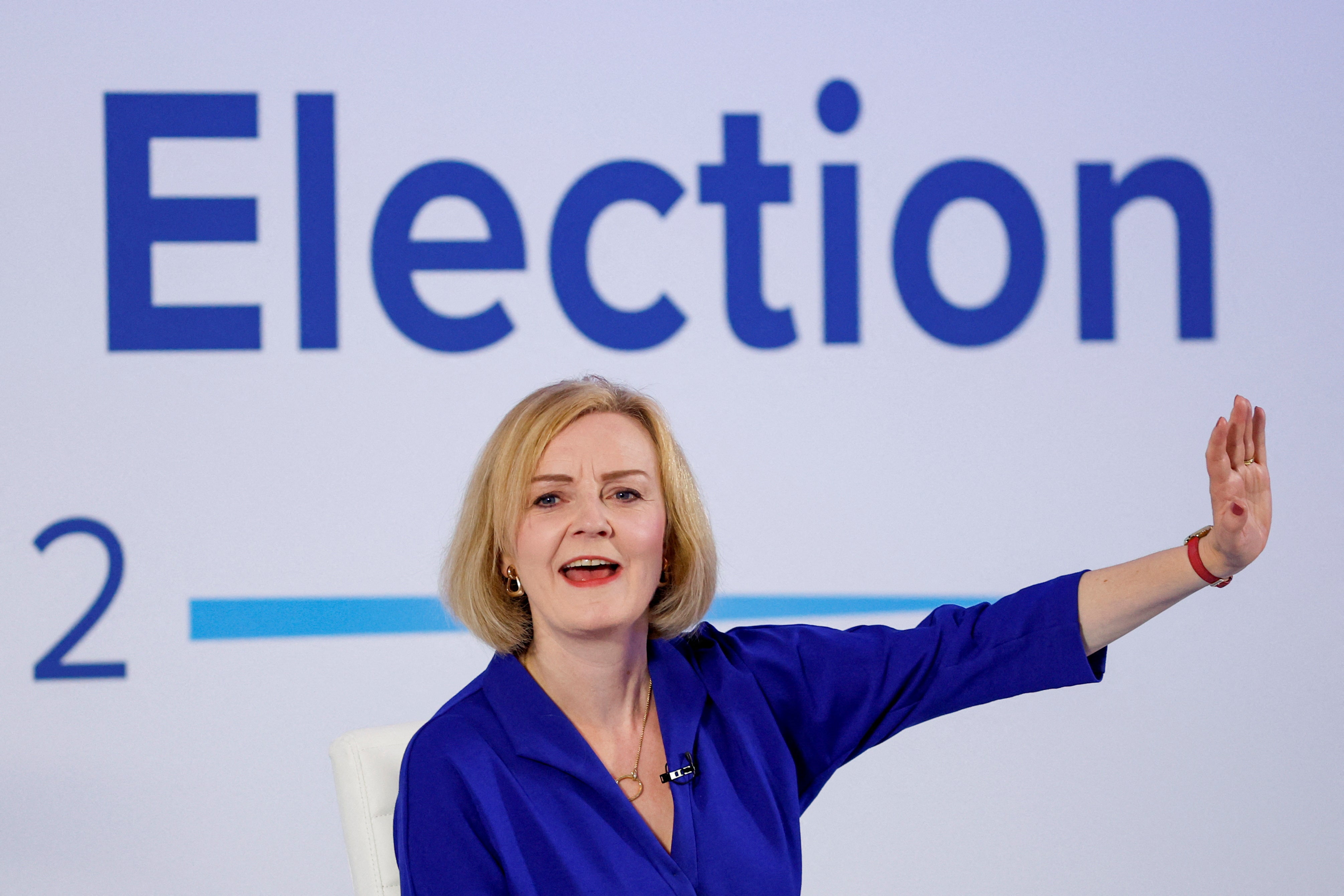The CBI is calling for help for the economy – but will Westminster listen?
The business group publishes its latest services survey today. It does not make for happy reading, writes James Moore


Too much talk that there’s going to be a recession,” said Britain’s prospective prime minister Liz Truss, just over a week ago now.
She claimed that a “level of ambition” was required to “change the orthodoxy” of the Bank of England, which has been forecasting just such an event. Everyone shout it out loud now: “BRITAIN!”
The CBI this morning offers some more reality pills. It is not at all clear that Truss is interested in taking them, but let’s have a run through anyhow of what the business group has to say.
The services sector is the dominant one in UK plc, and it’s not even close. It accounts for more than 80 per cent of the economy. If it shivers, the latter feels the chill at the same time. Right now, it is in sore need of a woolly jumper.
The business group’s service sector survey for the three months to August found cost pressures (+69 per cent) and average selling prices (+31 per cent) growing at record rates.
They are expected to carry on expanding at the same clip during the current three-month quarter, which won’t surprise anyone who has been watching what has actually been going on.
Business volumes were, meanwhile, flat during the period, following growth in the previous quarter. Firms operating in the sector expect them to fall. In fact, expectations are currently at their weakest level since November 2020, when the country was slap bang in the middle of Covid lockdown.
Profitability is plunging, obviously, while uncertainty is weighing on investment decisions. Investment is what the British economy desperately needs. It is wearisome to have to keep banging that particular drum, but that’s the truth of it. Unfortunately, it is not likely to get it if things carry on as they are.
The growth that the economy also desperately needs will continue to be torpid, at best, coming out of the current crisis, unless and until this problem is addressed. The trouble is, when the issue is raised with politicians like Truss, they are apt to stick their fingers in their ears and start singing, I don’t know, the Kylie Minogue songs they used to dance to at the student union disco?
If it was Kylie’s music that they drunkenly flailed around to, her streaming revenues must be going through the roof, because the response to almost every problem Britain faces seems to be to sing “Na na na, na na na na na, na na na, na na na na na”. I invite you to guess the track. It’s a fine pop song, and those are some of the actual lyrics.
Charlotte Dendy, the CBI’s head of economic surveys, described the pickings for those looking for positives in its missive as “slim”. I assume that she means those looking for positives while still retaining a grip on reality, which the prospective prime minister appears to lack when it comes to business, economics, and much else besides.
I suppose you could point to employment in business and professional services continuing to grow, which it did over the last quarter, albeit at a slightly slower pace than in the three months to May. Trouble is, that will change. Spiralling costs – and it is not just energy – will inevitably mean that some businesses are made unviable. When they fail and lay off their workers, that metric will join the others in heading backwards.
You can ignore reality, just as Truss, her acolytes, and much of her party appear bent upon doing. But you can’t escape it. It is all there in the numbers. It will be there when the recession arrives, as it will.
“Come 5 September, business will be looking to the next prime minister to move swiftly and effectively to help shore up confidence. That means supporting vulnerable households and businesses with high energy prices, and setting out plans to get the UK economy back on a growth trajectory,” says Dendy.
I rather doubt that this is what business is going to get. As such, one does rather wonder how long it will be before Britain’s business community starts to give voice to the criticism you will regularly hear spoken in private.
The vindictive nature of Boris Johnson’s administration – an aspect that doesn’t look likely to change – made businesses and business groups wary of voicing dissent. They feared being frozen out.
Thing is, if you’re not being listened to on the inside – if you’re being answered with Kylie (Na na na, na na na na na) every time you raise an issue – is there any point in being there?
Join our commenting forum
Join thought-provoking conversations, follow other Independent readers and see their replies
Comments
Bookmark popover
Removed from bookmarks